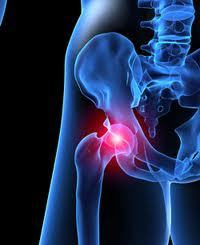As a Texas medical doctor and DePuy Hip Recall and Replacement Attorney, I am fielding many calls from concerned plaintiffs regarding their implanted DePuy ASR and DePuy Pinnacle Metal on Metal Hip prosthesis.
The Food and Drug Administration has received many complaints recently about failed hip replacements. The FDA has received more than 5,000 reports since January concerning metal-on-metal hips. The majority of complaints involve patients who have had an all-metal hip removed, or will soon undergo such a procedure because a device failed after only a few years. Metal-on-metal hip replacement systems are a widely used type of artificial hip, which are designed to last about 15 years. However, complaints suggest that thousands of people are experiencing early failure of the hip implants within a few years of surgery, often leading to additional surgery to replace the hip.
The complaints confirm that all-metal replacement hips are becoming the biggest and most costly medical implant problem since Medtronic recalled a widely used heart device component in 2007.
Some patients have suffered crippling injuries caused by tiny particles of cobalt and chromium that the metal devices shed as they wear. This is known as metallosis. This may result in soft tissue damage, inflammatory reactions, bone loss, genetic damage, asceptic fibrosis, local necrosis or other problems that may lead to the need for a risky hip revision surgery.
Hip replacement is one of the most common procedures in the United States and all-metal implants accounted for nearly one-third of the estimated 250,000 replacements performed each year. According to one estimate, some 500,000 patients have received an all-metal replacement hip.
One of the artificial hip devices, the A.S.R., or Articular Surface Replacement, was recalled last year by Johnson & Johnson and accounted for 75 percent of the complaints. Under F.D.A. rules, many all-metal devices were sold without testing in patients or without a requirement that producers track their performance. The F.D.A. in May ordered producers to study how frequently the devices were failing and to examine the threat to patients.
In August 2010, a DePuy ASR hip recall was issued for more than 90,000 of the metal hip implants, after it was discovered that a higher-than-expected number were failing within a few years of surgery. Similar problems have been reported in connection with other metal-on-metal hip implants sold by other companies.
In February 2011, the FDA launched a new website in February 2011, which was designed to provide information about the risks associated with metal-on-metal hip replacements.
The FDA has now asked device manufacturers to obtain more information about the level at which the metal particles shed by hip replacements becomes dangerous, how much metal they actually shed and what the potential side effects of metallosis are.
As problems and questions grow, some surgeons are abandoning the all-metal hips, saying they are unwilling to expose new patients to potential dangers when safer alternatives — mainly replacements that combine metal and plastic components — are available.
For many patients, it is too late. The number of complaints filed with the F.D.A. about a product understates a problem because while companies must file reports, doctors and patients do not have to. The filing volume for the DePuy A.S.R. and the Zimmer Durom cup probably reflects a surge of lawsuits filed against their makers.
According the recent New York Times review, there were 7,500 complaints about the A.S.R., nearly 5,000 of them coming since January. In the case of the Durom cup, about 1,600 complaints were filed with the regulator from 2007 to this June.
It is impossible to say how many adverse reports about all-metal hips have been submitted. The Times analysis found some 200 complaints about an all-metal version of another DePuy device called the Pinnacle as well as 400 additional complaints that noted metal-related problems in Pinnacle patients. But the Pinnacle is sold in several versions, so it was not clear how many of the metal-related complaints were linked to the all-metal device.
Many individuals throughout the United States have already filed metal-on-metal hip replacement lawsuits over problems allegedly caused by metallosis or metal poisoning. All DePuy ASR hip lawsuits have been consolidated in federal court as part of an MDL, or multidistrict litigation, in Northern District of Ohio. Lawsuits over DePuy Pinnacle hip metal-on-metal implant replacements, which is another has been consolidated in the Northern District of Texas in Dallas.
d
 Dallas Fort Worth Injury Lawyer Blog
Dallas Fort Worth Injury Lawyer Blog


